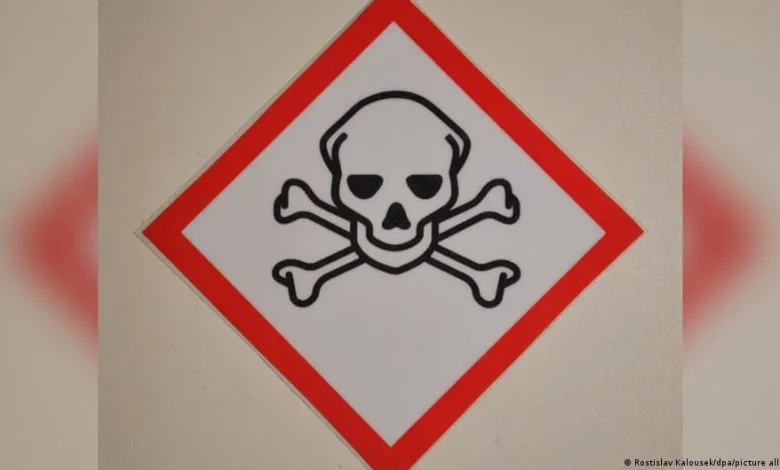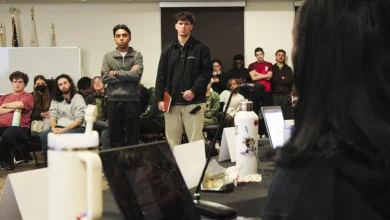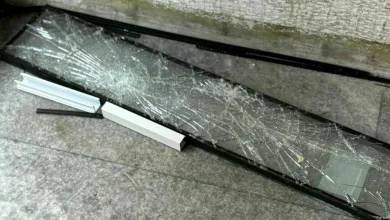Turkey hotel deaths: Deadly phosphine gas suspected

Chemical poisoning — not foodborne disease — is now being investigated as the probable cause of the deaths of a German-Turkish family in Istanbul last week.
It has again brought the role of phosphine-producing pesticides into focus, and follows several similar incidents in Turkey and around the world.
Local newspaper Cumhuriyet has now reported the initial findings from forensic analyses performed on samples taken from the bodies of the mother and her two children who died between 13 and 14 November. The father and husband of the deceased passed away on 17 November.
Excerpts from the initial report said “primarily, it is believed that they died as a result of chemical poisoning caused by the circumstances in the hotel where they were staying.”
A pathological examination of the victims’ bodies, along with microbiological (for the presence of disease-causing pathogens), toxicological (for the presence of toxins) and chemical analyses are still to be performed.
Initially, the family was suspected of having contracted food poisoning, having eaten at several street food vendors in Istanbul’s popular Ortakoy district, and several people linked to local food providers visited by the family had been arrested. However food poisoning is no longer considered the likely cause of their deaths.
An Istanbul hotel is the center a major investigation following four deaths, which are now being linked to the possible use of a chemical agentImage: DHA
Handle with care: deadly pesticides need careful use
The evacuation of the Fatih district hotel, where the family had been staying prior to their hospitalization, raised the possibility of chemical poisoning.
Reports suggested that pesticides used to control a bedbug infestation had leaked into the family’s room via the hotel ventilation system. This is yet to be confirmed by authorities.
Nevertheless, the suggestion has once again raised concerns about the use of industrial chemicals in settings that can pose high risk to human lives.
Such chemicals include metallic phosphides, which are effective as pest controllers, but can cause severe illness and death if handled incorrectly.
One such pesticide is aluminum phosphide (AlP), the agent reportedly used in the hotel.
AlP is a chemical compound commonly used to kill vermin in grain stores and to prevent crop damage. It is used away from humans, such as inside rodent burrows. It is licensed for agricultural use in Turkey and many other countries.
The Bedbug Hunters
To view this video please enable JavaScript, and consider upgrading to a web browser that supports HTML5 video
When exposed to air moisture, the solid chemical reacts and releases phosphine gas, which is lethal to animals. Early signs of poisoning include vomiting or coughing blood. The deceased family was reported as having experienced these symptoms.
Cavit Isik Yavuz, a public and environmental health doctor based at Hacettepe University, told DW that AlP is not usually permitted for domestic use.
“According to Turkish legislation, AlP can be used as a plant protection product in storage facilities for products such as grain, wheat and corn, but not in areas defined as public health areas, such as homes, hotels and workplaces. The [Turkish] Ministry of Health supervises the use of biocides in areas defined as public health areas,” said Yavuz, who recently co-authored a report reviewing the correct use and management of the compound.
Phosphine for pest control is not advised
Though phosphate pesticides are recommended for large grain stores and only to be applied by licensed professionals, the chemical is often diluted to reduce the risk it poses to workers and the public.
“Regulations and inspections, as well as individuals’ awareness of biocidal products, require them to be aware of the potential dangers of these products,” said Yavuz. “Trained professionals must apply the correct products in the proper places, taking the necessary precautions.”
Like Turkey, many countries ban the use of metal phosphides to remove bedbugs.
But enforcement and control of these substances can be limited, and products like AlP have been used extensively in middle and lower-income countries to combat rodents and insects.
Turkey has also previously seen deaths due to AlP misuse. In 2023, a case of its use for bedbug control led to the death of a mother, child and 10 hospitalizations. Other incidents of suspected AlP poisoning were reported in 2024.
And there have been other cases around the world. In 2015, a similar bedbug control incident using illegally imported AlP from Pakistan in a Canadian apartment saw two children killed and four other family members hospitalized.
Bedbugs are insects that belong to the genus Cimex. They are blood-suckers that can be easily controlled by maintaining hygenic cleaning practises in bedrooms.Image: blickwinkel/IMAGO
Bedbug control is possible with simple hygiene
Health agencies around the world have different guidelines for controlling bedbugs, which are small, flat and reddish blood-sucking insects.
Mostly, they recommend keeping bedrooms clean, tidy and free from clutter, as these insects like to live in cramped places.
Bedbugs can usually be found in the seams of mattresses, around bed frames, on bedroom furniture and in cracks in floors and walls.
Aside from professional pest controllers, good bedroom hygiene can also help prevent infestation.
While folk and home remedies like vinegar sprays and essential oils are sometimes suggested, there is little scientific evidence for their effectiveness.
The most reliable way to control for bedbugs, recommended by most health authorities, is the regular washing and drying of bedroom linen at high temperature, vacuuming of bedrooms, bed frames and mattresses, and steaming infested areas of a bedroom at 50°C (120°F).
If professionals are used, ensuring they use approved and human safe pesticides is also a good measure.
Edited by: Maren Sass





